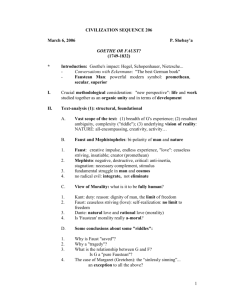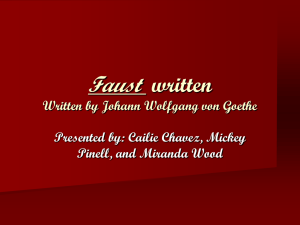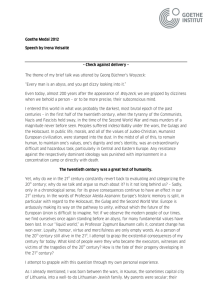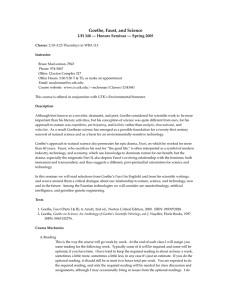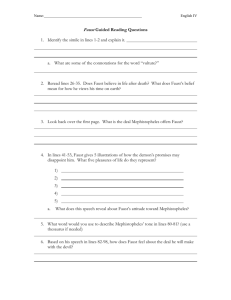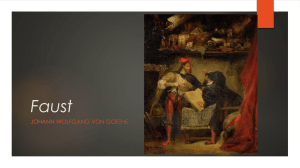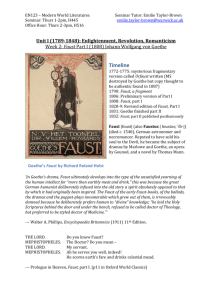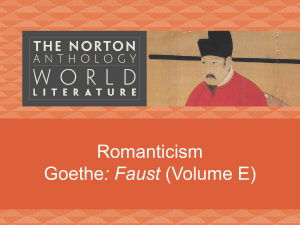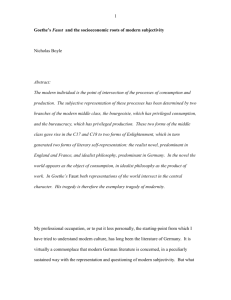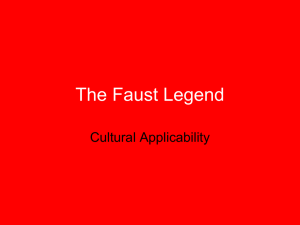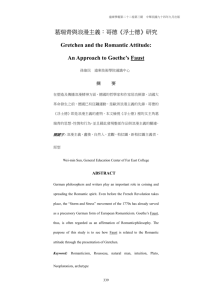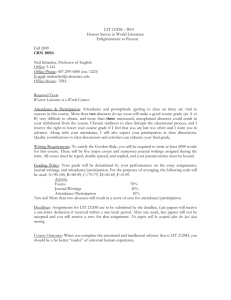Goethe: Faust Spirits of the Romantic Movement Terms
advertisement
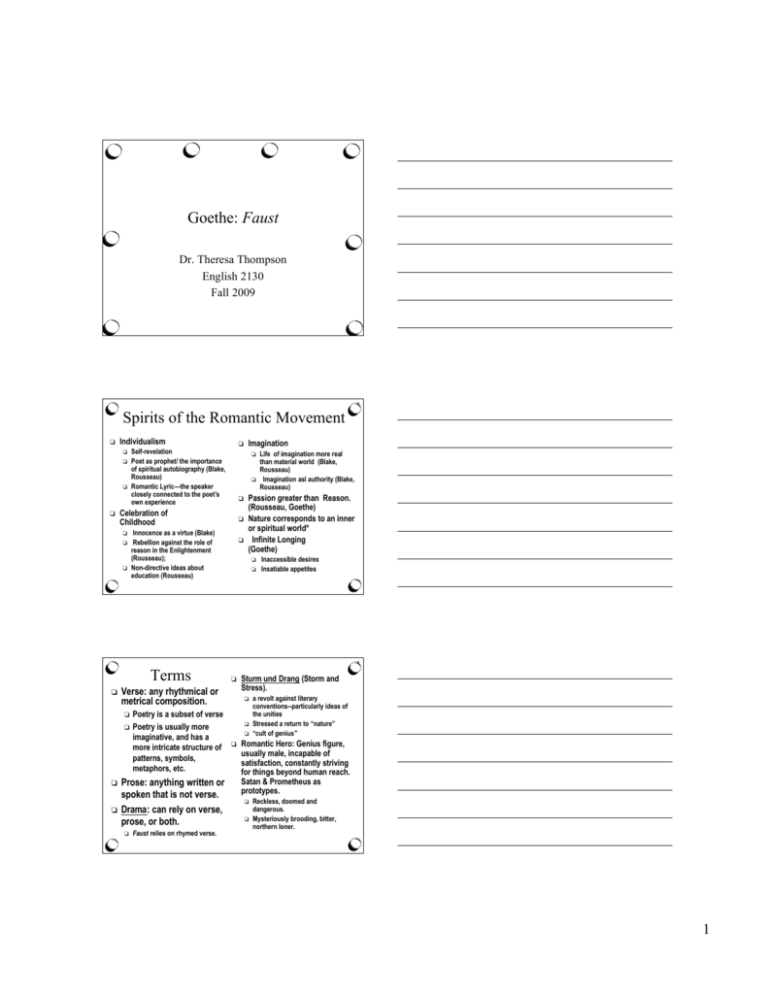
Goethe: Faust Dr. Theresa Thompson English 2130 Fall 2009 Spirits of the Romantic Movement Individualism Poetry is a subset of verse Poetry is usually more imaginative, and has a more intricate structure of patterns, symbols, metaphors, etc. Prose: anything written or spoken that is not verse. Drama: can rely on verse, prose, or both. Faust relies on rhymed verse. Inaccessible desires Insatiable appetites Sturm und Drang (Storm and Stress). Life of imagination more real than material world (Blake, Rousseau) Imagination asl authority (Blake, Rousseau) Passion greater than Reason. (Rousseau, Goethe) Nature corresponds to an inner or spiritual world* Infinite Longing (Goethe) Verse: any rhythmical or metrical composition. Innocence as a virtue (Blake) Rebellion against the role of reason in the Enlightenment (Rousseau); Non-directive ideas about education (Rousseau) Terms Imagination Celebration of Childhood Self-revelation Poet as prophet/ the importance of spiritual autobiography (Blake, Rousseau) Romantic Lyric—the speaker closely connected to the poet’s own experience a revolt against literary conventions--particularly ideas of the unities Stressed a return to “nature” “cult of genius” Romantic Hero: Genius figure, usually male, incapable of satisfaction, constantly striving for things beyond human reach. Satan & Prometheus as prototypes. Reckless, doomed and dangerous. Mysteriously brooding, bitter, northern loner. 1 J.W. Van Goethe (1749-1832) An important figure in Romanticism. Imagination: supreme mental faculty Nature: sublime Burke (1776) linked beauty to the finite and the sublime to the infinite. Myth & Symbolism: correlate to nature’s emblematic language without one-to-one aspect of allegory. Goethe spent 60 years writing Faust. Began ~1770 and completed in 1832, just before his death. Part I published in 1808. The Myth of Faust Original Myth Faust was a wandering conjuror presumed to live in Germany ~14881541. Faust was an intellectual who sold his soul to increase his own power. Faust fears death. Goethe’s Faust: Very different “Prologue in Heaven” reconfigures Faust myth using the Book of Job. Mephistopheles, like Satan in Job, obtains permission to try to effect the ruin of Faust's soul. (682) “Lord” is confidant that Mephistopheles will fail & Faustus will not lose his soul. (683) Prologue anticipates the conclusion in Part II--we won’t be reading Part II. Delacroix: “Faust & Mephistopheles” Leit Motifs: dominant patterns Romantic Hero’s Infinite Longing Macrocosm v. Microcosm (686, 715, 752-753) Infinite v. Finite Strives after the unattainable (684, 690, 712) Mysterious, brooding loner (709, 750) Two souls struggle in his breast (700) Resurrection v. rebirth (692, 705, 717, 720) Love v. lust (743) Sublime Nature (infinite) v. art / magic (685, 699, 716, 748) Bonds / rules / law / contracts (711, 713) 2 Drama Drama: usually a literary work intended for performance before an audience. Poetic Drama (i.e. Faust) No narrator or narrative structure. Reliance on Characters, Setting, & Dialogue to communicate meaning. Drama written entirely in verse. Meant to be performed publicly. Closet Drama often written in verse. meant to be read not performed. 3
